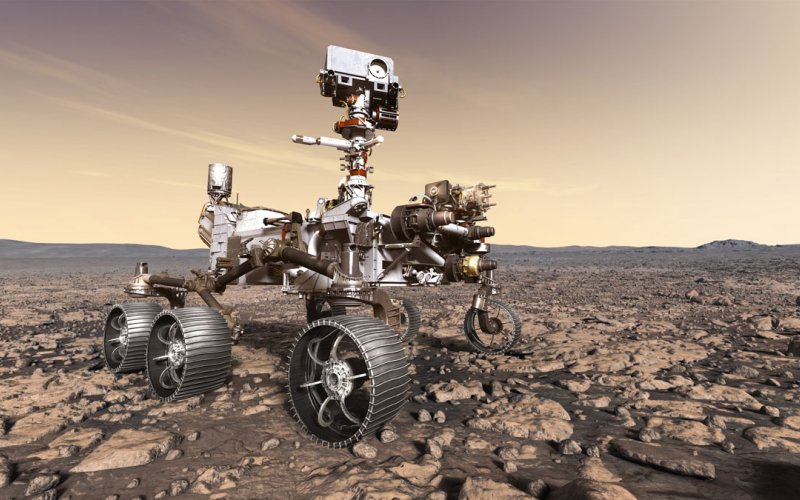Perseverance on Target for Mars Landing

ALBANY, N.Y. (Feb. 18, 2021) – After having traveled nearly 292.5 million miles, NASA’s Perseverance spacecraft is just about set to touch down on Mars. The landing, scheduled for about 3 p.m. today, is the culmination of a seven-month trip from Earth and nearly eight years of planning.
When the Perseverance rover lands, it will be the most sophisticated piece of equipment ever to interact with the Martian surface. Its task, to search for ancient signs of life, includes a first-ever robotic helicopter – Ingenuity – dramatically expanding the mission’s search capabilities.
At UAlbany, researchers are involved in a variety of similar activities that are designed to expand our understanding of robotics, life on other planets and remote sensing technology.
Mustafa Aksoy, an assistant professor of electrical and computer engineering at the College of Engineering and Applied Sciences, studies remote geophysical sensing using microwave technology and electromagnetic theory. Aksoy recently received one of NASA’s early career awards to study early-stage space technologies.
Aksoy’s focus is on radiometers onboard spacecrafts, which can measure physical and thermal properties of planetary surfaces. He said remote sensing instruments are rapidly expanding our knowledge of the worlds beyond our own, including our close neighbor Mars.
“Remote sensing systems are capable of traveling long distances on board space vehicles and measuring critical geophysical parameters over large areas; thus, they form the backbone of space exploration,” Aksoy said.
For Aksoy, Chinwe Ekenna and Kevin Knuth, the Mars Perseverance mission is another major step in our understanding of the formation of life, as we embark on a new age of exploration in the 21st century.
Ekenna is an assistant professor of computer science at the College of Engineering and Applied Sciences, and conducts research that centers on intelligent motion planning applied to robotics and proteins. She has explored intelligent adaptation of robotic motion planning to improve planning time and the utilization of available methods to improve overall quality of results. Her research interest includes Robotics, Machine learning and Computational Biology.
Knuth is an associate professor of physics in College of Arts and Sciences, studying cyberphysics, robotics and exoplanets, including the characterization of interstellar organic molecules.




